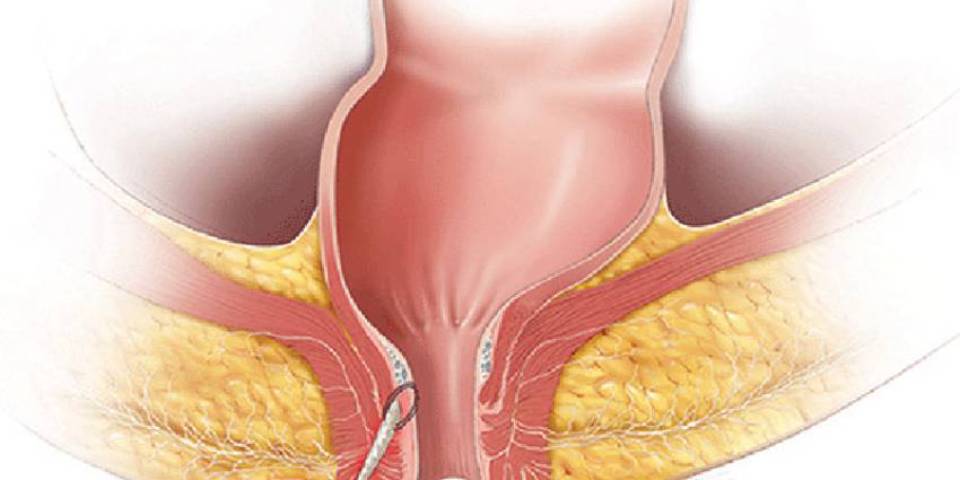Menu

Anorectal fistulas are painful and challenging conditions that can significantly impact a person’s quality of life. These abnormal passages between the anal canal and the skin near the anus often develop due to infections in the anal glands, and without proper treatment, they can lead to recurrent issues. One of the key factors in preventing anorectal fistulas is maintaining good hygiene, which plays a vital role in both preventing and managing the condition.
At Kaizen Fistula Care Clinic, Dr. Samrat Jankar, a leading expert in fistula surgery in Pune, highlights that cleanliness plays a crucial role in preventing infections and decreasing the chances of fistula formation.
What is an Anorectal Fistula?
An anorectal fistula is a small tunnel that forms between the skin around the anus and the inside of the anus or rectum. It normally occurs after an abscess (a collection of pus) forms in the anal glands. If the abscess does not heal properly, it can grow into a fistula, leading to signs like pain, swelling, and discharge.
How Poor Hygiene Contributes to Anorectal Fistulas?
The anal region is home to numerous sweat glands and hair follicles, which can easily become clogged with bacteria, debris, and waste. When these areas are not cleaned thoroughly and regularly, they can become infected, leading to abscess formation. An abscess is a localized infection that can eventually develop into a fistula if not treated effectively. Bacteria from fecal matter can enter these small openings, causing further complications and inflammation, resulting in an anorectal fistula.
How Does Good Hygiene Help Prevent Anorectal Fistulas?
- Preventing Infection: The primary cause of anorectal fistulas is infection of the anal glands. Regular cleaning of the anus can help prevent bacteria from accumulating, decreasing the risk of infection and abscess formation. After bowel movements, gently cleaning the area with water and mild, non-irritating soap can significantly decrease bacterial buildup.
- Prevents Abscess Formation: Abscesses are often the precursor to anorectal fistulas. Regular hygiene, including the use of warm water for gentle cleaning, can help decrease the likelihood of abscesses forming by providing that bacteria do not become trapped in folds or openings near the anus.
- Maintaining a Healthy Gut: Good hygiene includes not only cleaning the external area but also providing proper bowel health. Constipation, straining, and incomplete bowel movements can lead to the development of hemorrhoids and anal fissures, which increase the risk of infection and fistula formation. Drinking plenty of water, eating fiber-rich foods, and practicing regular bowel habits are crucial.
- Reducing Irritation: Excessive wiping or the use of harsh cleaning materials can irritate the skin around the anus, increasing the risk of injury and infection. Using soft toilet paper, gentle wipes, or even rinsing with lukewarm water can minimize irritation and promote healing.
- Post-Surgery Hygiene: For people who have already undergone fistula surgery, proper hygiene is vital for healing and preventing recurrence. Keeping the surgical site clean, dry, and free from infection is essential. Dr. Samrat Jankar at Kaizen Fistula Care Clinic emphasizes the importance of following post-operative hygiene instructions, including sitz baths, applying prescribed ointments, and avoiding tight clothing.
- Proper Wound Care: In cases where a fistula has already formed and is being treated, wound care is vital. Keeping the area clean, changing dressings regularly, and using antiseptic solutions can help control infection and promote faster healing.
Practical Hygiene Tips to Prevent Anorectal Fistulas:
- Use warm water to cleanse the area after bowel movements.
- Avoid harsh soaps or chemicals that can upset the skin.
- Wear breathable, cotton underwear to keep the area dry and avoid irritation.
- Consider sitz baths: Sitting in warm water can soothe and clean the affected area.
- Maintain Regular Bowel Movements: Avoid constipation, which can strain the anal region. A fiber-rich diet and plenty of water can help maintain healthy digestion.
- Consult a specialist: Regular check-ups with a doctor, like Dr. Samrat Jankar, can help detect potential issues early and ensure proper treatment.
When to Seek Medical Advice?
If you experience persistent pain, swelling, or discharge around the anus despite maintaining good hygiene, it’s essential to seek medical advice promptly. Dr. Samrat Jankar at Kaizen Fistula Care, the best fistula clinic in Pune offers expert care and advanced treatment options to control and treat anorectal fistulas effectively.
Conclusion:
Hygiene plays a pivotal role in preventing anorectal fistulas by lowering the risk of infection, irritation, and complications. Simple techniques like proper cleaning after bowel movements, maintaining bowel health, and following post-operative care instructions can significantly reduce the likelihood of developing or worsening anorectal fistulas.
At Kaizen Fistula Care Clinic, Dr. Samrat Jankar emphasizes the importance of hygiene in the prevention and treatment of anorectal conditions. If you’re experiencing symptoms of an anorectal fistula, it’s essential to seek professional advice early to avoid complications and ensure effective treatment.
Recent News

Living with Fistula in Ano: Understanding
20th December 2024
Diet after Fistula-in-Ano Surgery: Essential Tips
13th December 2024
The Role of Hygiene in Preventing
10th December 2024
The Benefits of PILTEC: Advancements in
4th December 2024
Preventing Recurrence of Anorectal Fistulas After
14th November 2024
Why Do Anal Fistulas Recur? Understanding
21st October 2024
Preventing Fistula Formation: Key Steps to
9th October 2024
Different Types of Anorectal Fistula: Understanding
26th September 2024
Benefits of the Fistula Plug Procedure
14th September 2024
Traditional vs. Modern Approaches to Fistula
4th September 2024Location
Contact info
- Kaizen Gastro Care, Shop no. 208 / 209, Oriana Crest building, Datta mandir road, Opposite Costa Rica society, Wakad, Pune - 411057
- gastrosamrat@gmail.com
- 097636 35252 / 075584 23708
Fistula Cure
Quick links
© 2024 Kaizen Fistula Care All rights reserved


